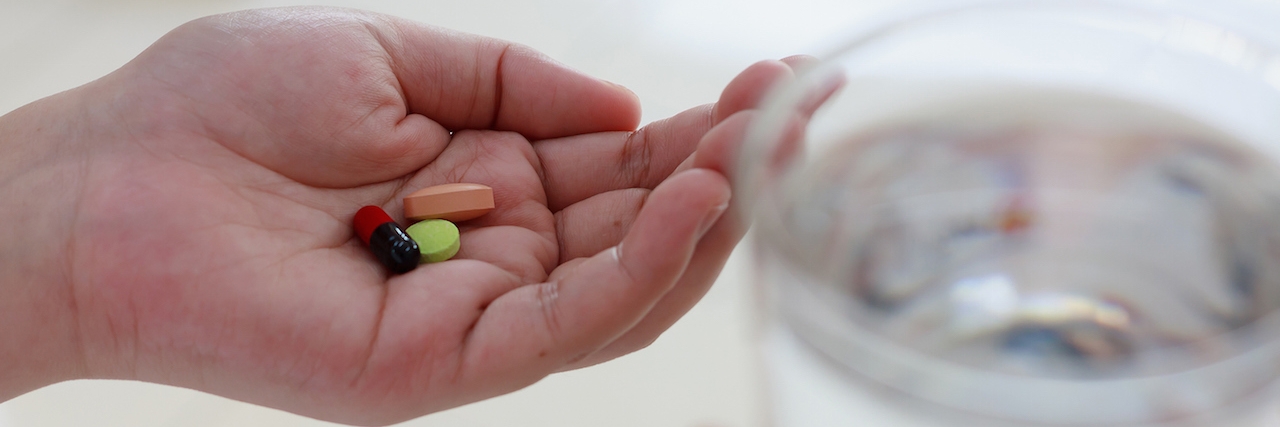There’s no definitive cause to Crohn’s disease. Like a variety of other diseases from ulcerative colitis to lupus, it’s a mysterious variety of factors that may or may not cause illness to develop in a patient. Suffice it to say — it’s not the patient’s fault that they have these diseases.
I definitely didn’t ask for Crohn’s disease. I was just a high school junior, living my life, studying for the ACT, working at Applebee’s, and watching way too much “Buffy the Vampire Slayer.” I was just like all my friends, until my body decided that food wasn’t a thing it was going to put up with anymore. And just like that, I went from healthy 17-year-old to chronic illness patient for life. My intestines did not consult me about this.
And here’s the thing — our society places a really high premium on being healthy. Which is great! It (hopefully) stops people from eating french fries for every meal, because who wouldn’t want to do that if health weren’t a factor? It keeps us exercising, and eating well, and all of those other good, Instagrammable things. We should definitely all be aware of the parts of our health that are within our control as much as we can. But what about the parts that are out of our control?
When we talk about health like it’s a personal success, the problem is that we all too often then talk about illness like it’s a personal failure. So many people pride themselves on not having to take pharmaceuticals, or on getting by on yoga and their unrelenting positivity. But that puts those of us who kind of need pills and infusions and fancy CT machines in a tough spot.
So even if you think Big Pharma is evil and ruining America, please try to keep that to yourself when talking to someone with a serious illness. Believe me, we don’t want to be on all these pills. We don’t want to be dependent on so many things to get by. But we are, and it’s not something we’ve chosen. Being sick is not a failing on our part, and doing what we have to do to get through it is also not open to judgement. Believing we as humans don’t “need” pills for health is a viewpoint that all too often comes from a place of privilege. Just because you personally don’t need medication to make it through the day does not mean others don’t.
So I’m not saying we should stop celebrating the healthy — marathon runners are wonderful mutants and they deserve those medals and the little “26.2” bumper stickers to put on their Jeeps. But just make sure that when you are going after your own health goals, or talking to someone else about theirs, that we aren’t all the same. For a healthy person a health goal might be training for a triathlon. For someone with a chronic disease, a health goal might be a walk around the block or, if you’re me, some incredibly low-key yoga. All options are valid and great, and one is not better than the other.
So practice a little empathy next time you’re around the water cooler talking diets or exercise regimens. We can’t all climb Mount Everest, but hopefully we can all make ourselves feel successful in one way or another.

